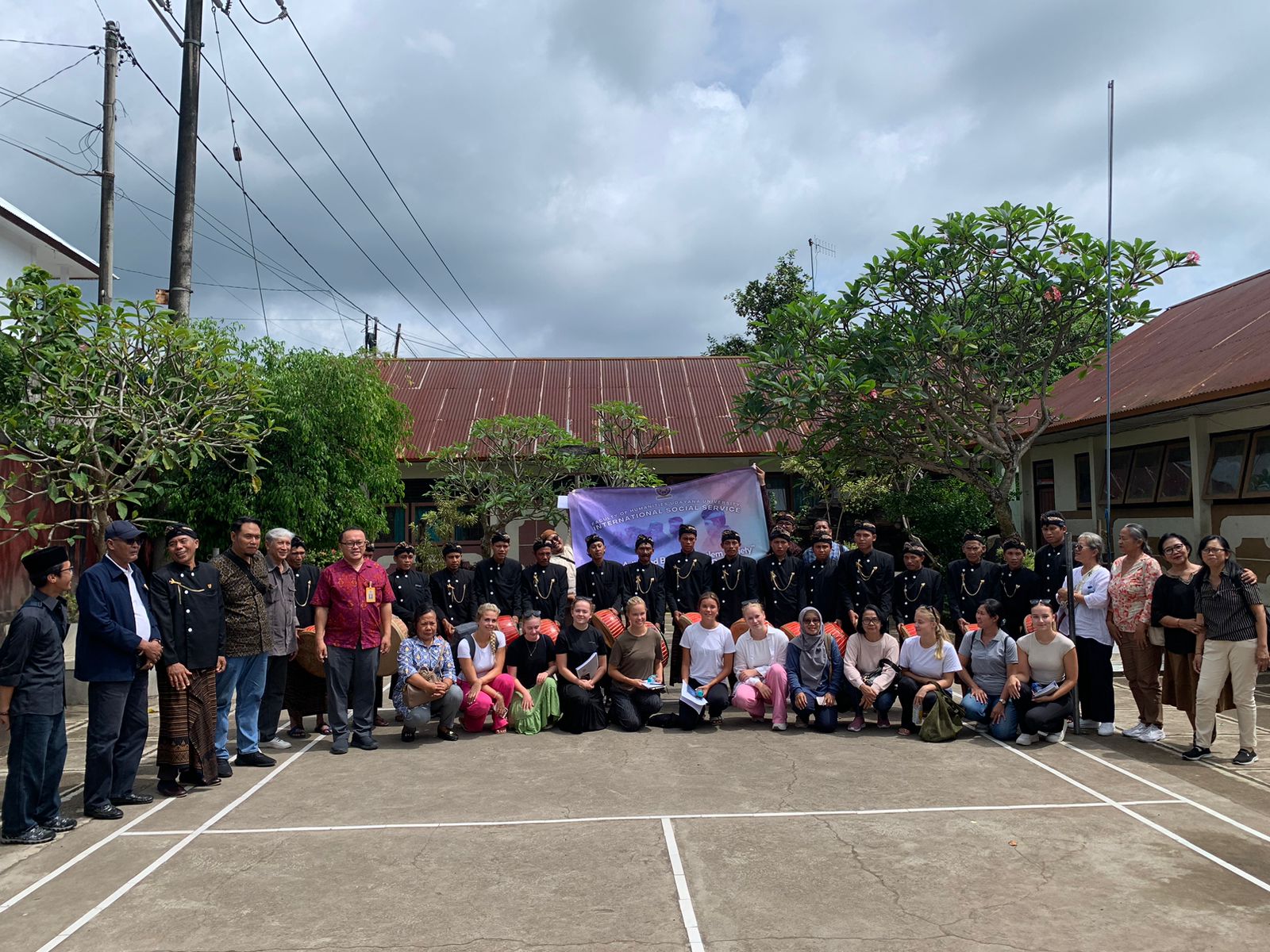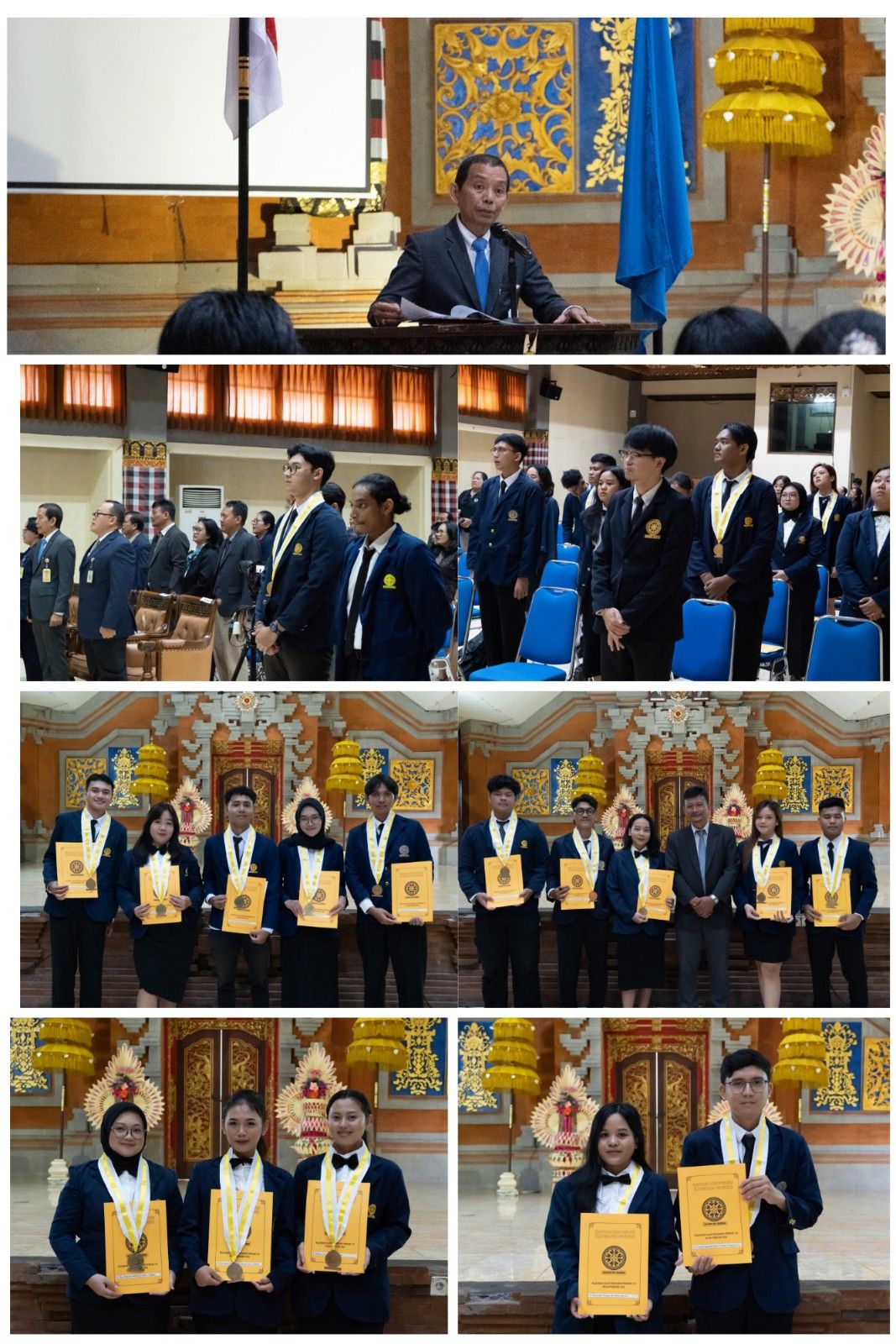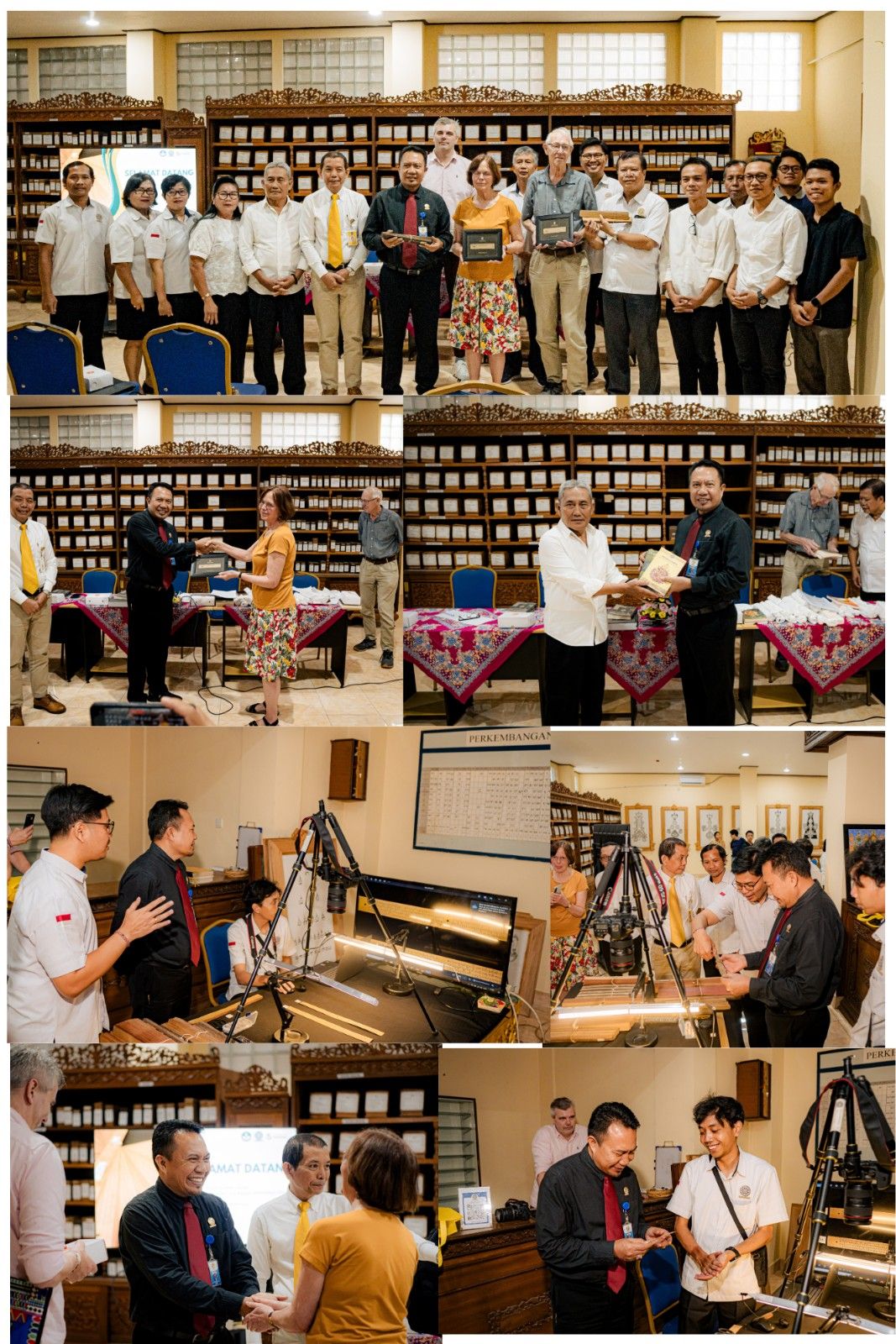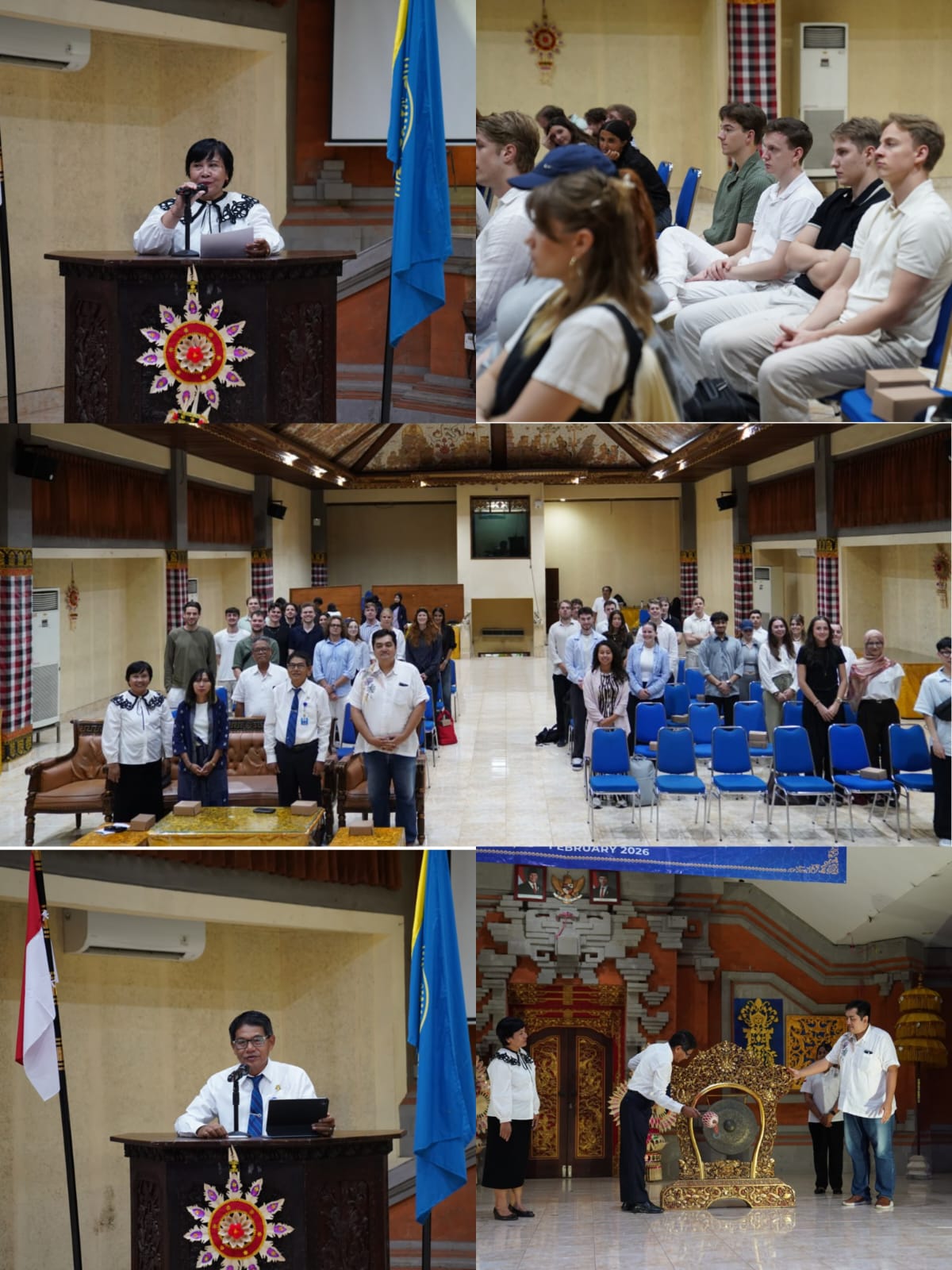Culttural Anthropology Study Program Faculty of Humanities Unud Organized Community Service in Pengayaman Buleleng
The Cultural Anthropology Study Program Faculty of Humanities Unud held community service at Pegayaman Buleleng on Friday, May 3 2024. This event aimed to give the appreciation to Burdah artists in Pegayaman. This event was attended by the Vice Dean I, Dr. I Gede Oeinada, S.S., M.Hum., Coordinator of the Cultural Anthropology Study Program, Aliffiati, S.S., M.Si., representatives of lecturers in FIB study programs, Pegayaman village officials, Buleleng Regency history enthusiasts and Norwegian students who took part in the field trip program. The field trip program itself is a collaboration between the Anthropology and Go Study study programs.
This event was welcomed by the Pangayaman Village Secretary, Hatta Amrullah. In his opening, Hatta expressed his gratitude for the assistance provided by FIB Unud. "This is a form of educational institutions' concern for preserving traditional culture," said Hatta. Vice Dean I Dr. I Gede Oeinada, S.S., M.Hum opened the community service event and thanked the welcome from the government and residents of Pangayaman. "We thank the residents for the extraordinary welcome, please allow us to provide prayer mats and sarongs to the community as well as basic food packages for Burdah artists and Koran teachers here." said Vice Dean I.
After presenting the gifts from the Anthropology study program, the event continued with a presentation of the unique history of Pegayaman by Drs. Ketut Muhammad Suharto. In the material Drs. Ketut Muhammad Suharto presented the history of Pegayaman and the genealogy of the Muslim community of Pegayaman. " Pegayaman has a long history, even from the oldest sources it has been recorded since the time of Mataram Hindus, this cannot be separated from the time of development from the dynamics of the upheaval of the control of Bali from the Kings of Nusantara which started from the year 882 AD, when Mataram Hindus began to have aspirations to dominate Bali as its kingdom's territory".
According to Drs. Ketut Muhammad Suharto, the Muslim community of Pegayaman himself, has unique origins as well. "The origins of the Muslim community of Pegayaman can be traced back to the Buleleng Kingdom when I Gusti Anglurah Panji Sakti came to power in 1648. King I Gusti Anglurah Panji Sakti attacked the Blambangan Kingdom, with a Muslim army led by Nur Alam, Nur Awin, and Nur Mubin. The king then gave the Muslims a territory of 2000 hectares because of the services of the Pegayaman Muslims in building Buleleng Kindong and gave the opportunity for the Pegayaman Muslims to develop and stabilize in maintaining their communities that survive until now”. said Muhammad Suharto.
In the next session Drs. Ketut Muhammad Suharto explained about Burdah art in Pegayaman. The Burdah in Pegayaman is the poems found in the book Qasida Burdah compiled by Sheikh Al Busyiri in the 13th century in Egypt. The contents of this Burdah is the praises to the Prophet Muhammad in the form of poetry totaling 160 stanzas. "The Burdah in Pegayaman has a unique characteristic, which is to use a rhythm that is almost similar to the rhythm of Balinese songs, and the clothes worn by Burdah artists are the characteristic of Balinese clothing, this reflects the cultural acculturation in Pegayaman." Said Muhammad Suharto in his material.
According to the Coordinator of the Cultural Anthropology study program, Aliffiati, S.S., M.Si., this event has many benefits for FIB Unud, firstly for community service of the study program and faculty, secondly is to introduce Balinese culture to international students. "This event is also an observation of the Anthropology study program to create a socio-cultural laboratory in Pegayaman. In the future we will coordinate with various parties to make this laboratory a reality." concluded Aliffiati.





UDAYANA UNIVERSITY